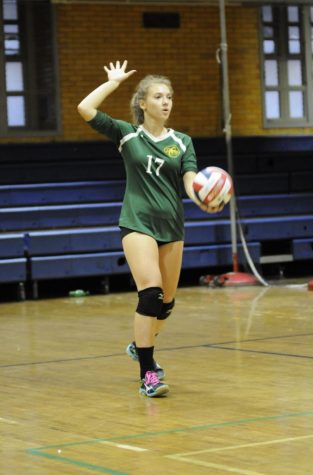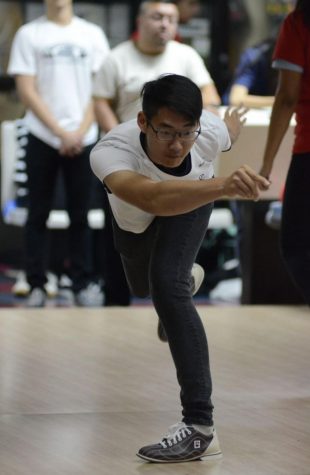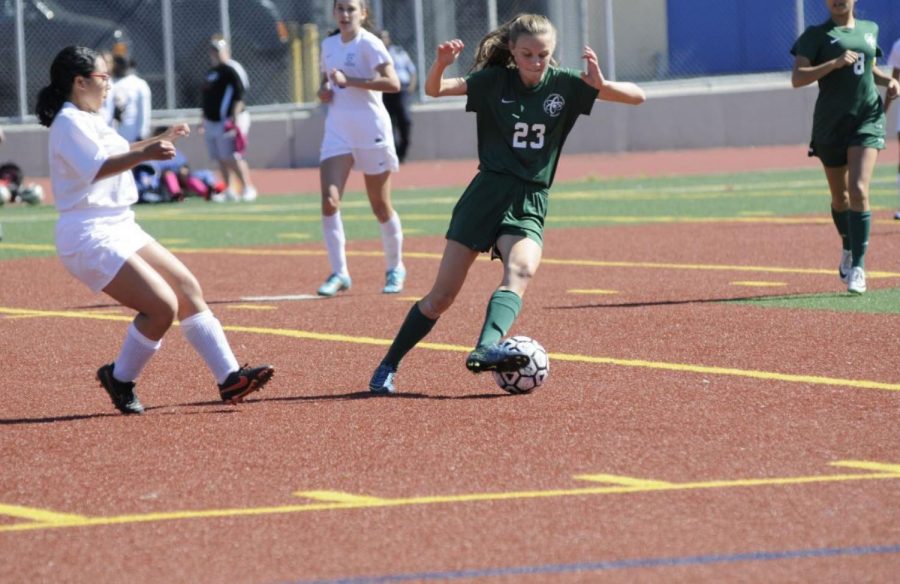Bronx Science Sweeps Division Championships Over and Over Again
Varsity Soccer member Claire Glendening ’18 swiftly dribbles the soccer ball across the field, and away from opponents during a game.
Bronx Science is not only home to strong academics. It is home to dominating many sports division titles! Soccer, volleyball, basketball, softball, and table tennis, for example, clinch the division championship year after year.
However, these titles can come with a grain of salt. The fact is that many of the other teams in our divisions are just not as competitive as Science’s teams. PSAL divides sports divisions based on location, not skill.
While there are different levels of competition within each borough, oftentimes skill levels are not best met by schools within the Bronx borough. “It is extremely easy to win the division. In the last three years we have lost 1 game to teams in our division while winning 42. We win by an average of 12 runs or more, which is ridiculous. We won a game 50-0. That’s a lopsided score even if you’re playing football,” said Anna Leidner ’18 of the varsity softball team.

A member of the Varsity Volleyball team, Kateryna Slinchenkova ’18 gets ready to serve the ball to the opposing team.
The Bronx Science Girls’ Varsity Soccer teams experiences something similar. They used to be in the Manhattan division but since moving to the Bronx division, they “stopped getting challenged in the regular season,” said Emily Bedolis ’18.
For these reasons, many teams do not feel well prepared going into playoffs based on regular season games. A solution for this is interleague games, where the best teams in each division play each other during the regular season.
However, PSAL has since decided to stop organizing these interleague games due to complaints over the long distances needed to be traveled to reach other boroughs.
Bronx Science teams in the past have had to travel up to two hours to reach teams in places such as Staten Island and have had to opt out of classes and leave school early just to account for the immense travel time, affecting students’ education.
“Each match is close and we have to play our best as a team to win.”
However, for many students these interleague games were the only way to get a real feel for what the playoff games would be like.
“After learning from last season that playing teams far less skilled than us damages our performance in the playoffs, our coach tried to schedule scrimmages against more talented teams like Hunter this season,” said Bedolis.
This lack of preparedness for playoffs, stems from another PSAL problem as a result of the faulty division organization, playoff seeding.
When it comes time for playoffs, PSAL needs to organize the top teams to play each other. Quantitatively looking at a Bronx Science team in comparison to a team from a borough such as Staten Island, Bronx Science can easily appear much more talented, due to the large number of wins from the lack of competition within the Bronx division. This could result in Bronx Science being seeded much higher than a team that is far more talented than Bronx Science.
Many students have opinions about the reasons for the discrepancy between other Bronx teams and Bronx Science teams, one being the difference in motivation and hard work.
“Almost all of our players have been playing soccer for our whole lives and that we have a very smart coach who pushes us to be competitive and committed to the sport. I can’t speak for other teams, but from what I’ve observed, it looks like a lot of our competitors in the Bronx just don’t take soccer as seriously as the Bronx Science team does,” said Bedolis.
These discrepancies in level of competition do occur between many teams within the Bronx divisions that Bronx Science plays in.
It is also important to note that this isn’t true for every Bronx Science team. For example, the Bronx Science Girls’ Varsity Tennis team, which is in a division comprised of teams from other boroughs and is a more accurate depiction of skill level, has a rivalry with Beacon. Perhaps, the competition for the tennis team has something to do with a better PSAL divided division. Many other Bronx Science teams know going into games that they will win, but for tennis, there is always competition.
“Our division is not easy to win. Beacon made it to the championship last year and other teams like Stuyvesant and Hunter put up a good fight. When we play Beacon the team wears our uniforms to school and puts on face paint. For many of our other games, each match is close and we have to play our best as a team to win,” said Brett Zakheim ’19.
For many students, winning is not the most important object of the game. It is almost better to lose every game to competitive teams than to go through the season undefeated within the division. Playing competitive and relatively similarly skilled teams allows players to grow and learn how to play better. Playing teams that lack competition, can be considered a waste of time, as the players on the better team do not gain much out of it and will not be prepared for higher competition levels.

As the Varsity bowling team takes the lead in their game, senior Baron Huang finishes his strides, which sent the ball hurling towards the pins, straight down the middle of the alley.
As the Varsity Bowling team takes the lead in their game, Baron Huang ’18 finishes his strides, which sent the ball hurling towards the pins, straight down the middle of the alley.While Bronx Science students think that there is room for improvement within PSAL divisions, many students are accepting of what the divisions are. If our team was to decide how the divisions were made, we would most likely choose a system based on a team’s skill level, not location.
“In New York City, where field space is limited and hard to get to, and where all of the public schools are great academic institutions whose students do not have a lot of time to travel to games and practices, it isn’t going to work,” said Bedolis.
Other students agree. “I don’t think making different divisions within the Bronx is an option, because the Bronx teams are what they are. I don’t think PSAL can or should change the divisions. We can’t just start playing in the Manhattan league,” said Leidner.
Overall, Bronx Science has many talented athletes who work extremely diligently in their respective sports. However, PSAL divisions do not always fairly reflect the skill level that Bronx Science athletes work so hard to achieve, dividing schools primarily based on location, and in turn hurting our players.
Alexa Asch is in her third year of journalism and is a Managing Editor/ Copy Chief for ‘The Science Survey,’ and a Groups Reporter for ‘The Observatory.’...
Jonathan Rodriguez is the People Section Editor for ‘The Observatory,’ and a Staff Reporter for ‘The Science Survey.’ Jonathan is an avid fan of...
Nicole Neil is an Editor for the Student Life section of the ‘Observatory,’ as well as a Staff Reporter for ‘The Science Survey.’ This is her third...

